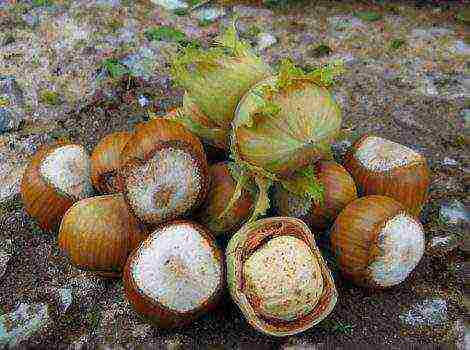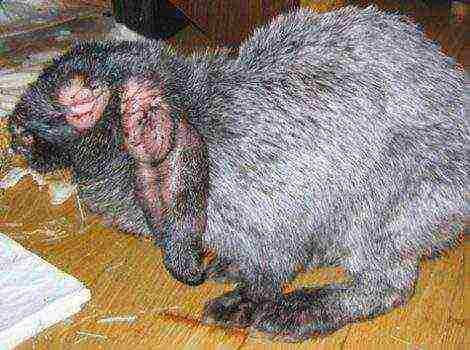Content
Causes and treatment of bloating in rabbits
Rabbit digestion is particularly tender and unstable. Consequently - frequent disturbances in the work of the stomach and intestines... The most common of these is bloating (tympania), which even a novice rabbitry will surely face.
The proposed article will tell you in detail about the causes, prevention, symptoms and treatment of bloating in rabbits.
Why rabbits can have a swollen belly, causes and symptoms
The digestion process in a rabbit, like most herbivores, runs almost continuously. This means that there is always food in the stomach and intestines of the eared eared. Normally, the rabbit will eat before the onset of gastrointestinal stasis, that is, food stagnation or complete intestinal blockage.
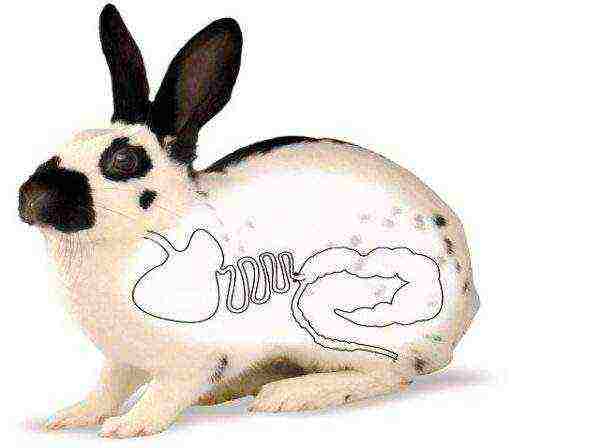
Why can the belly swell in rabbits? Blockage of the intestines and causes bloating, increased gas production, impaired appetite of the animal, because of which the offspring can die. A beginner rabbitry needs a good understanding of the causes of this phenomenon, which will avoid a lot of hassle and costs. These are usually:
- Dehydration of the body - an adult rabbit needs up to half a liter of water every day. And the animal must have access to it all the time;
- Stresscaused by a sharp change in diet, weather factors, movement of the animal, the presence of nearby predators (ferrets, weasels, stray dogs, etc.);
- Lack of fiber in foodthat help normal bowel function.
- Appearance in the intestines and reproduction of pathogenic bacteria;
- Ingestion of wool or poor quality food that causes the fermentation process.
Abdominal disease (tympania) in rabbits can also develop with violations of the intestinal microflora, which is not always a direct consequence of food delays. The reasons for tympania in this case may be:
- Diseases of the teeth and oral cavity... Most often it manifests itself in older individuals. As a result, poor chopping of food and a forced diet due to the inability to chew food normally;
- Antibiotic usethat destroy the intestinal microflora;
- Sedentary Lifestyle;
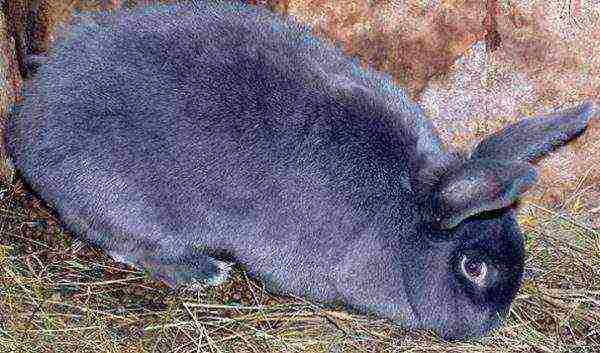
The process of digesting cabbage, wet grass, legumes in itself is difficult for a rabbit's intestines. therefore manifestation of certain symptoms of tympania (flatulence, rumbling in the abdomen) is not yet a sign of the presence of a disease, much less gastrointestinal stasis.
Symptoms of GI Stasis, Unlike Other Diseases
Recognize gastrointestinal stasis it is possible already at the very initial stage. For an experienced breeder, this is not difficult. A trained eye immediately draws attention to a swollen belly. There is nothing catastrophic about this. In rabbits, this is the most common ailment.
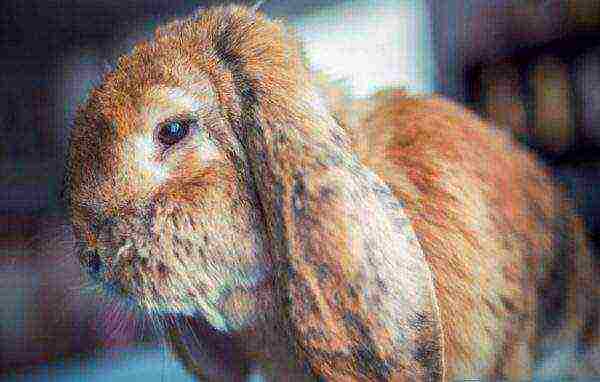
For a beginner rabbitry, we describe all signs of the appearance of FSW, obvious and hidden to the untrained eye:
- Refusal to eat, lethargy, depression... Since rabbits usually eat a lot and with pleasure, the loss of appetite is clearly visible;
- If flatulence or rumbling is detected, it is advisable to feel the pet's belly. The presence of seals near the walls of the abdominal cavityrumbling, transfusion, gurgling is a clear sign of the accumulation of food, liquid and gases in the intestines;
- Stool retention and disturbance... Lack of droppings up to 10-12 hours, a sharp change in color or a decrease in the size of characteristic balls.
For viewing pets experienced rabbitries use a stethoscope Is an inexpensive but very useful device. With its help, you can listen to the intestines of the animal and establish with high accuracy the signs of the disorder.
At the same time, the presence of mucus, blood clots in the rabbit droppings, prolonged diarrhea - evidence of infection or other dangerous diseases, because of which the offspring can die. In this situation, you must contact your veterinarian.
How to properly treat bloating in a rabbit
Rabbits if they show signs of an eating disorder use the following procedure:
- A sick animal is necessary put away from other pets;
- Then for careful inspection the animal should, taking it under its front paws, put its back on its knees with its head towards itself. If the rabbit is nervous or resists, then it needs to be reassured. As soon as the rabbit gets used to the hands, you can start feeling the abdomen and massage.
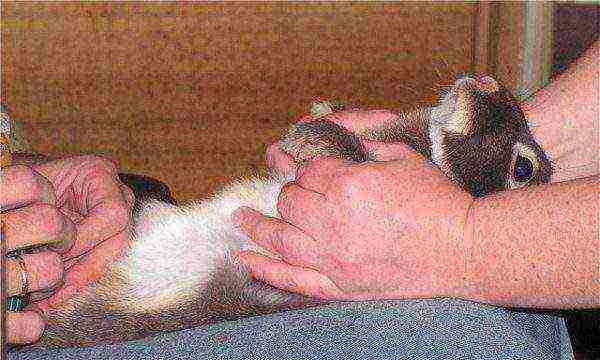
Only after examination, making sure that your pet has bloating is required to start treatment. There are two ways to treat it:
- Folk;
- Medication.
Treatment with folk remedies
The simplest and safest for the animal are massage and decoctions. Finger massage, with smooth movements without strong pressure (the internal organs of rabbits are very delicate). Massage can be done both circular (clockwise), and in the direction from the head to the tail. The task of massage - help the rabbit to push through the mass stuck in the intestine.
Duration of massage and frequency of repetition chosen empirically. If 5-7 minutes of leisurely massage does not bring relief to the animal, then more effective means should be used.
Decoctions can also help... However, these funds are rather prophylactic. With acute manifestations of FSW, decoctions are useless and it is not worth spending time on them, especially since the life of an animal can go on for hours.
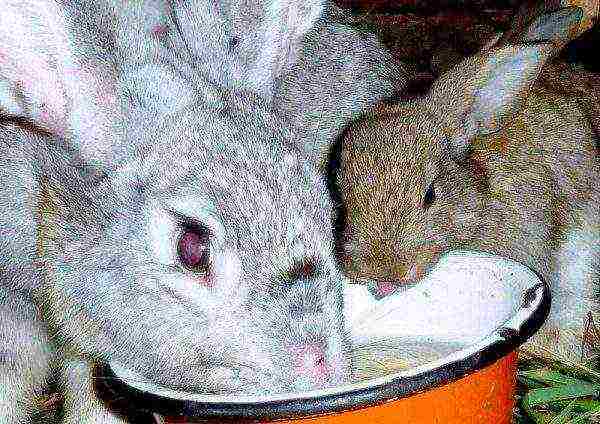
Chamomile, dill, dandelion and wormwood are used to make decoctions. For prevention these herbs are recommended to be added to food and dry.
Another way to slow down intestinal fermentation is found in every home. This is alcohol or its derivatives (vodka or moonshine). For an adult rabbit, you need only 1-2 tablespoons (no more) of a warm drink, the strength of which does not exceed 30 degrees.
A sick rabbit needs to drink plenty of fluids. and free space. Therefore, if there is an opportunity to let him out for a walk, do not miss it.
In this situation, one person firmly holds the animal by the paws, not allowing it to escape. The other can gently open the mouth of the animal and give him medicinal potions.
Medicines, analgesics, antibiotics
A beginner rabbitry should be very careful about advice on the use of medicines. They can often be useless and at times be harmful. However, a number of medications are desirable to have on hand.
- Activated carbon - a very useful medicine and completely safe. For a sick rabbit, it is necessary to crush 2-3 tablets of coal and stir them in a glass of warm water;

- Tympanol - a specialized veterinary drug for bloating in ruminants. The dosage is determined based on the weight of the animal. For each kilogram of weight, 0.5 mg of the drug and a tablespoon of warm water are required. The resulting mixture lasts for 20-30 minutes. The drug is natural, therefore, its use does not carry any special risks.
Refrain from force feeding, all kinds of heating pads, enemas and other means used to treat a person, since they can only be effective in the hands of an experienced rabbit breeder. As for the numerous antibiotics and analgesics, it is best to use them after consulting a veterinarian.
What to do with this disease, diet and food
Sick and recovering animals need special meals for 2-5 days (digestive upset usually lasts so long). Fresh greens, vegetables and fruits, especially cabbage, beet tops, and legumes are completely excluded from the diet.
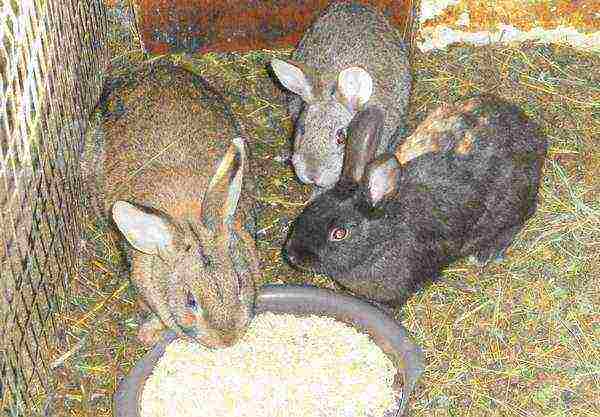
Best food for sick rabbits it is hay or oats... You can feed with pumpkin or zucchini - this is a dietary dish for the eared ones. Chamomile, dandelion, sage, dill, wormwood, and parsley are herbs that are good for bloating, so don't take them away from your pet.
Prevention of tympania and GI in rabbits
It is hardly possible to completely eliminate digestive disorders in rabbits.but useful recommendations will reduce the frequency of their occurrence:
- No need to overfeed animals juicy herbs, fruits and vegetables;
- Everything products must be clean and suitable for food (rot, mold, fermented or spoiled food is strictly prohibited to give to animals);
- Not worth feeding sweet foods and sugar;
- Animals should always have clean drinking water.
Also, rabbits will not be disturbed. regular walks in the aviary and an attentive attitude. It will help you recognize bloating early on.
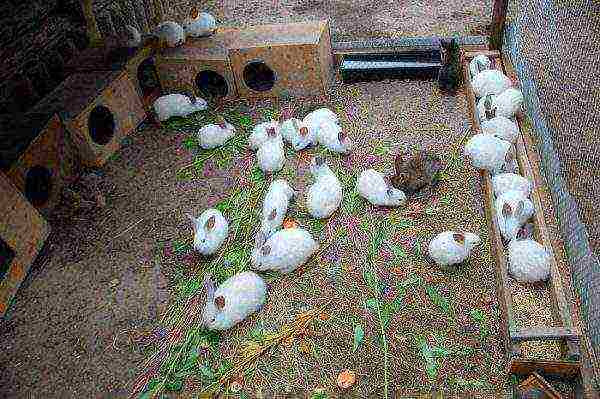
In conclusion, it is worth noting that on the Internet you can read a lot of advice, find out dozens of names of drugs "useful" for rabbits, from the usual analgin to expensive and dubious enzymes. Without experience and a correct diagnosis, they should not be used.... For a novice rabbit breeder, in difficult cases, it is best to go to the veterinarian.
